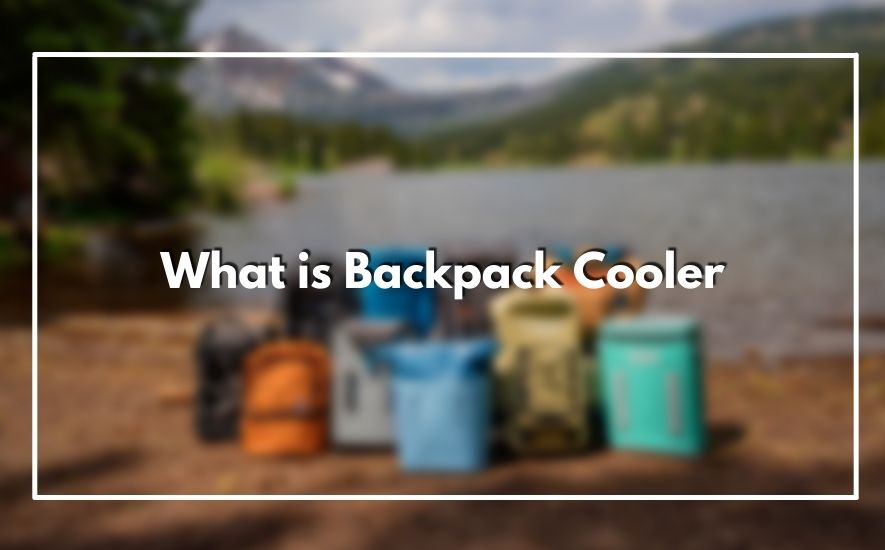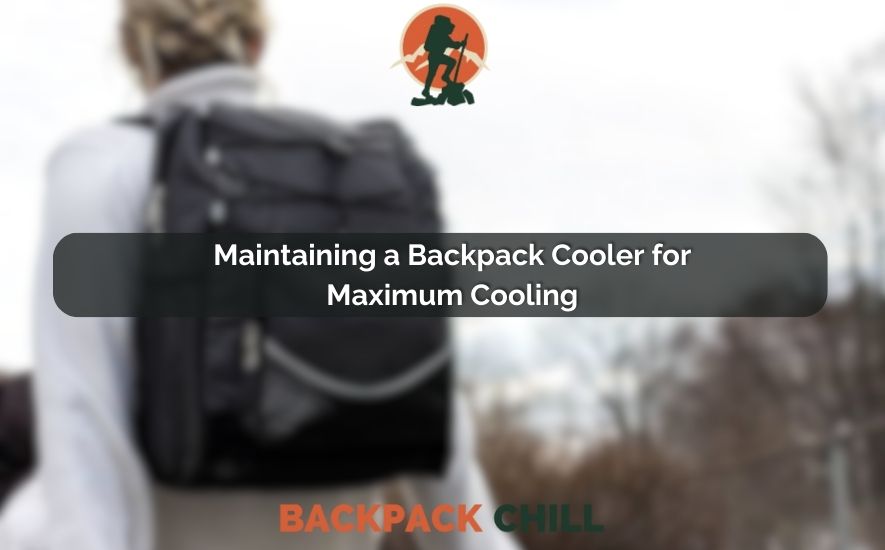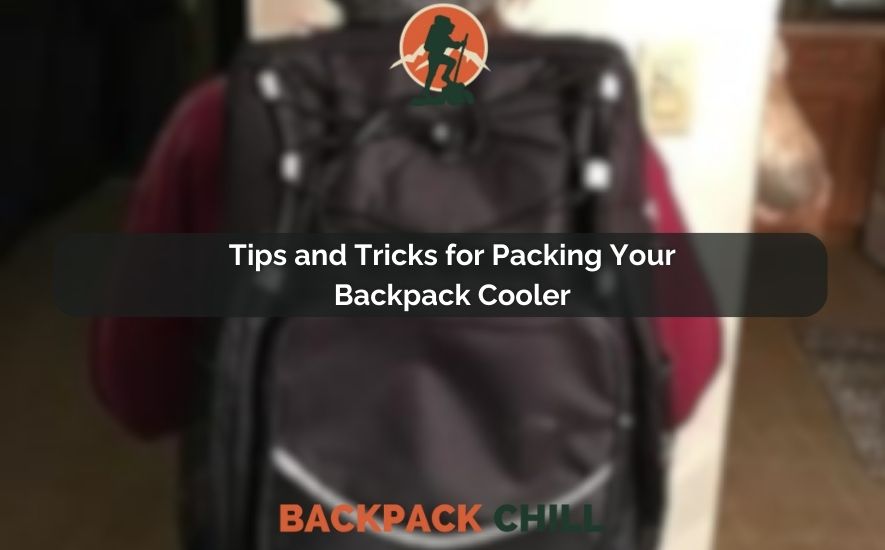Physical Address
304 North Cardinal St.
Dorchester Center, MA 02124
Physical Address
304 North Cardinal St.
Dorchester Center, MA 02124

A backpack cooler is a versatile and ingenious solution for outdoor enthusiasts and travelers seeking to keep their food and beverages refreshingly chilled on the go. Combining the convenience of a backpack with the functionality of a cooler, this innovative product has gained popularity for its practicality and ease of use.
What is Backpack Cooler? A backpack cooler is a product that integrates the features of a backpack and a cooler, enabling users to carry chilled food and beverages while on the move, making it perfect for various outdoor activities.
Imagine having the ability to effortlessly transport your favorite snacks, sandwiches, and drinks without the burden of carrying a separate cooler or compromising on storage space. Designed to maintain the optimal temperature of your edibles, a best backpack cooler is ideal for picnics, hiking trips, beach days, sporting events, and practically any activity that demands sustenance in a cool and refreshing state.
The backpack cooler is ingeniously designed to offer users a seamless experience. It typically consists of a well-insulated main compartment, which serves as the cooling zone. The insulation ensures that the cold temperature remains inside, keeping the contents fresh and cool.
The backpack itself is made from durable and waterproof materials to withstand rugged outdoor use and protect the contents from external elements. Adjustable shoulder straps and padded back panels enhance comfort during extended wear, making it ideal for long hikes or picnics.
The functioning of a backpack cooler is simple yet effective. Users can store ice packs or ice cubes inside the insulated compartment, creating a chilly environment for the items they wish to keep cold.
The insulation prevents the heat from seeping inside, maintaining the desired temperature for an extended period. Additionally, some advanced models may come with a built-in cooling system, powered by rechargeable batteries or solar panels, which further extends the cooling capabilities without the need for ice.
One of the key advantages of a backpack cooler is its versatility in use. It proves to be an excellent companion for a wide range of activities, including hiking, camping, beach outings, picnics, sporting events, and even for daily errands.
With its hands-free portability, users can conveniently carry their refreshments and snacks wherever they go, ensuring they have access to cold beverages and chilled foods at any time.
Backpack coolers come in various sizes and storage capacities, catering to different needs and preferences. Some models are designed for light travels and short outings, providing just enough space for a couple of drinks and snacks.
On the other hand, larger variants are perfect for group activities or longer trips, accommodating multiple drinks, food containers, and even space for extra ice packs to maintain the cold temperature over an extended period.
Apart from the primary cooling functionality, manufacturers have incorporated various additional features to enhance the overall user experience. Many backpack coolers for fishing are equipped with multiple pockets and compartments, allowing users to organize their belongings effectively. External mesh pockets are ideal for holding water bottles or other essentials, while integrated bottle openers can prove to be a handy tool during social gatherings.
To make the most of your backpack cooler, consider some tips for optimal cooling performance. Pre-chill the contents before placing them inside the cooler to extend the cold retention.
Opt for reusable ice packs instead of ice cubes to prevent potential leaks and water accumulation. Keep the cooler away from direct sunlight and open it only when necessary to maintain the internal temperature.

A backpack cooler is a fantastic companion for outdoor adventures, picnics, and camping trips, providing refreshing cold drinks and preserving perishable food. To ensure your backpack cooler functions optimally and keeps everything ice-cold, proper maintenance is crucial.
Before embarking on your adventure, it’s essential to pre-cool your backpack cooler to enhance its cooling capacity. The night before your trip, place some ice packs or frozen water bottles inside the cooler to prime it for optimal cooling. This step will help retain the cold temperatures longer once you add your items.
Efficient packing is key to maintaining maximum cooling. Organize your backpack cooler by placing ice packs or frozen items at the bottom, creating a cold foundation. Arrange your perishables on top, ensuring there’s minimal air space. Reducing air gaps prevents warm air from circulating, thus keeping your items colder for an extended period.
To maintain your backpack cooler’s cooling efficiency, monitor the internal temperature regularly. Keep the cooler away from direct sunlight and hot surfaces. Avoid opening the cooler frequently, as this allows warm air to infiltrate, diminishing the cooling effect. Limit access to the cooler to preserve the low temperature inside.
Regular cleaning is vital to keep your backpack cooler in top-notch condition. After each use, empty the cooler and dispose of any remaining ice packs. Use a mild detergent and water to clean the interior, removing any spills or food residues. Rinse it thoroughly and let it air dry to prevent any unpleasant odors or mold growth.
When not in use, store your backpack cooler in a cool, dry place. Avoid leaving it in direct sunlight or damp environments, as this can damage the insulation and reduce its cooling capabilities. Proper storage ensures your cooler remains in optimal condition for future adventures.
For maximum cooling, it’s crucial to manage the ice efficiently. Rather than using large ice blocks, consider using smaller ice cubes or crushed ice. Smaller ice pieces have more surface area, leading to better cold distribution within the cooler. Additionally, using resealable plastic bags for ice prevents water leakage as the ice melts.
Inspect your backpack cooler’s insulation regularly for any signs of damage or wear. Even a small tear or hole can significantly affect its cooling efficiency. If you notice any issues, promptly patch them up or consider investing in a new backpack cooler with robust insulation.
While backpack coolers are designed to be portable, it’s essential not to overload them. Overstuffing the cooler can reduce airflow and inhibit proper cooling. Stick to the recommended weight and capacity to ensure your backpack cooler operates optimally.

To optimize your cooler’s performance, organize your items in layers. Start with a layer of ice packs or frozen items at the bottom. Then, place your most perishable foods on top of the ice packs.
Build subsequent layers with less perishable items, such as beverages and snacks. This arrangement ensures that you won’t have to dig through the entire cooler to access the most sensitive items.
To reduce the need for excess ice, freeze some of your food and drinks before packing them. For instance, freeze water bottles and use them as ice packs. As the frozen items thaw throughout the day, you’ll have cold drinks at hand, and the meltwater can be used to cool other perishables.
To prevent leaks and potential mess inside your backpack cooler, pack items like fruits, sandwiches, and condiments in ziplock bags. These bags create a reliable barrier and also help you save space, making it easier to fit everything inside the cooler.
Consider the order in which you’ll need your items during the outing. Pack the essentials, like sunscreen, utensils, and napkins, on top for easy access. Items that you won’t require until later in the day can be placed deeper in the cooler.
As tempting as it may be to bring everything, try not to overpack your cooler. A packed cooler has reduced air circulation, which can lead to faster ice melt. Bring only what you need to maintain the efficiency of your cooler.
If you’re planning a long day outdoors, it’s natural for your ice to melt. Bring extra ice packs or cubes in a separate container, and refresh your cooler with new ice as needed. This way, you can ensure your food and drinks stay at a safe temperature throughout the day.
Position your backpack cooler in a shady spot whenever possible. Direct sunlight can cause ice to melt faster and compromise the freshness of your food. Keeping the cooler in the shade also helps maintain a cooler internal temperature.
Always double-check that your backpack cooler is securely sealed. A tight seal prevents warm air from entering and cold air from escaping, ensuring your items stay chilled for as long as possible.
In conclusion, the backpack cooler is a fantastic innovation that perfectly blends functionality and convenience. With its insulated interior and comfortable design, it proves to be the ideal companion for outdoor enthusiasts, hikers, beach-goers, and anyone on the go. Its ability to keep beverages and food items refreshingly cold allows us to indulge in our favorite treats without worrying about spoilage.
A backpack cooler is portable and designed like a backpack, providing hands-free convenience for outdoor activities. A regular cooler is a standalone container with varying sizes and handles. The former is more suitable for on-the-go use, while the latter offers greater capacity.
A backpack cooler is used to keep drinks and snacks cool during outdoor adventures like hiking, picnics, or beach trips. Its hands-free design makes it convenient for active pursuits, and it’s also handy for everyday use, like going to work or the gym.
Yes, you can put ice in a backpack cooler. Ice packs or sealed ice cubes work best to avoid melting leaks. They help maintain the desired temperature for your items, but be mindful not to overfill the cooler with ice, leaving space for your food and drinks.
To convert a regular backpack into a cooler, line the inside with insulation like foam sheets or bubble wrap. Place sealed ice packs or gel packs inside and pack your chilled items. Close the backpack securely to create a makeshift cooler. However, purpose-built backpack coolers offer better insulation and convenience.